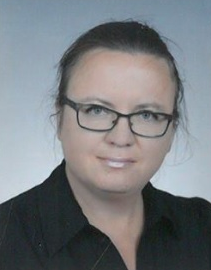
Words and only words – this is how the speech delivered by the German President Frank-Walter Steinmeier during the celebration of the 80th anniversary of the outbreak of the Warsaw Ghetto Uprising can be summed up in a nutshell. For the crimes committed in occupied Poland, the Germans have not yet been held accountable, and yet the victims, apart from Polish Jews, were mainly Poles.
Although reparations were transferred to Israel under the Luxembourg agreement concluded in 1952 between Germany and the State of Israel, and later the money also went to Jewish organizations, the issue of individual payments has still not been finally closed. It is a great injustice that Poles are still completely deprived of German reparations, and yet it was Poland that was the greatest victim of the criminal Third Reich, including Polish Jews. Meanwhile, the authorities in Berlin are trying their best not to pay reparations due to Poland. The vast majority of German society is opposed to reparations for Poland. In this context, I see Frank-Walter Steinmeier’s visit as putting on a good face for a bad game – under the guise of diplomatic expiations, hiding the fact that the Germans do not regret their crimes at all, because they do not want to make amends for them.
“The crimes that the Germans committed in occupied Poland, here in the Warsaw Ghetto, should have more place in our memory, which is why it is so important for me to be here with you today” – the German president said during the ceremony, noting that ” too few perpetrators of crimes were brought to justice after the war. “I stand before you today and ask for forgiveness for the crimes that the Germans committed here” – the German leader stressed. “I stand before you in sadness and humility, feeling our responsibility for the crimes of the past and our responsibility for our common future” – he added.
Particular attention should be paid to the last sentence, because it carries a load of German plans towards Europe. It clearly shows that Germany, which has not yet accounted for the crimes and looting committed, claims the right to bear responsibility for the common future of Europe. As they perceive this responsibility, it has been outlined in a way that leaves no illusions in the coalition agreement of the current German government – as the leadership of the European federation. And it is impossible not to get the impression that Frank-Walter Steinmeier’s visit was primarily aimed at ensuring that the shameful German past did not bury Berlin’s contemporary imperial plans.
“We Germans are aware of our responsibility and the mission left to us by the survivors and those who are dead. We accept this mission. For us Germans, the responsibility towards our history knows no end, it remains a warning and a mission for us” – said the German president thus trying to convince that the Germans have drawn conclusions from the past and want to turn them into a “mission” of federalizing Europe under their aegis, as these words should be understood in this way. Admittedly, it is a diplomatic masterpiece. The Germans clearly want to neutralize Warsaw’s opposition to federalization while avoiding paying compensation for their crimes and the destruction of the Second World War. The authorities in Berlin have proven more than once that they are able to repent indefinitely, provided that it does not interfere with the implementation of their long-term plans. Both the famous kneeling of Chancellor Willie Brandt on December 7, 1970, and Frank-Walter Steinmeier’s expiations in the Warsaw Ghetto were not followed by any specific actions proving that this was not empty rhetoric.
“The real German problem is whether Germany will accept a peaceful partnership or will it continue to pose a hidden threat. Will we not hear one day that only Germany can bring order to our disorganized continent?” – once wrote Robert Schuman, one of the Founding Fathers of the European Community. These words have lost none of their relevance, on the contrary. It is worth realizing that until the Germans come to account for their crimes, they will pose a hidden threat that Schuman wrote about. There will probably be more courtesy visits like the one on the 80th anniversary of the Warsaw Ghetto Uprising, as well as empty rhetoric. Meanwhile, the Polish-German partnership requires Germany to compensate for the harm done to the Poles, otherwise it will be marked by the stain of racism, imperialism and colonialism. And no beautiful and touching words from the lips of successive German leaders will change that.
Anna Wiejak
